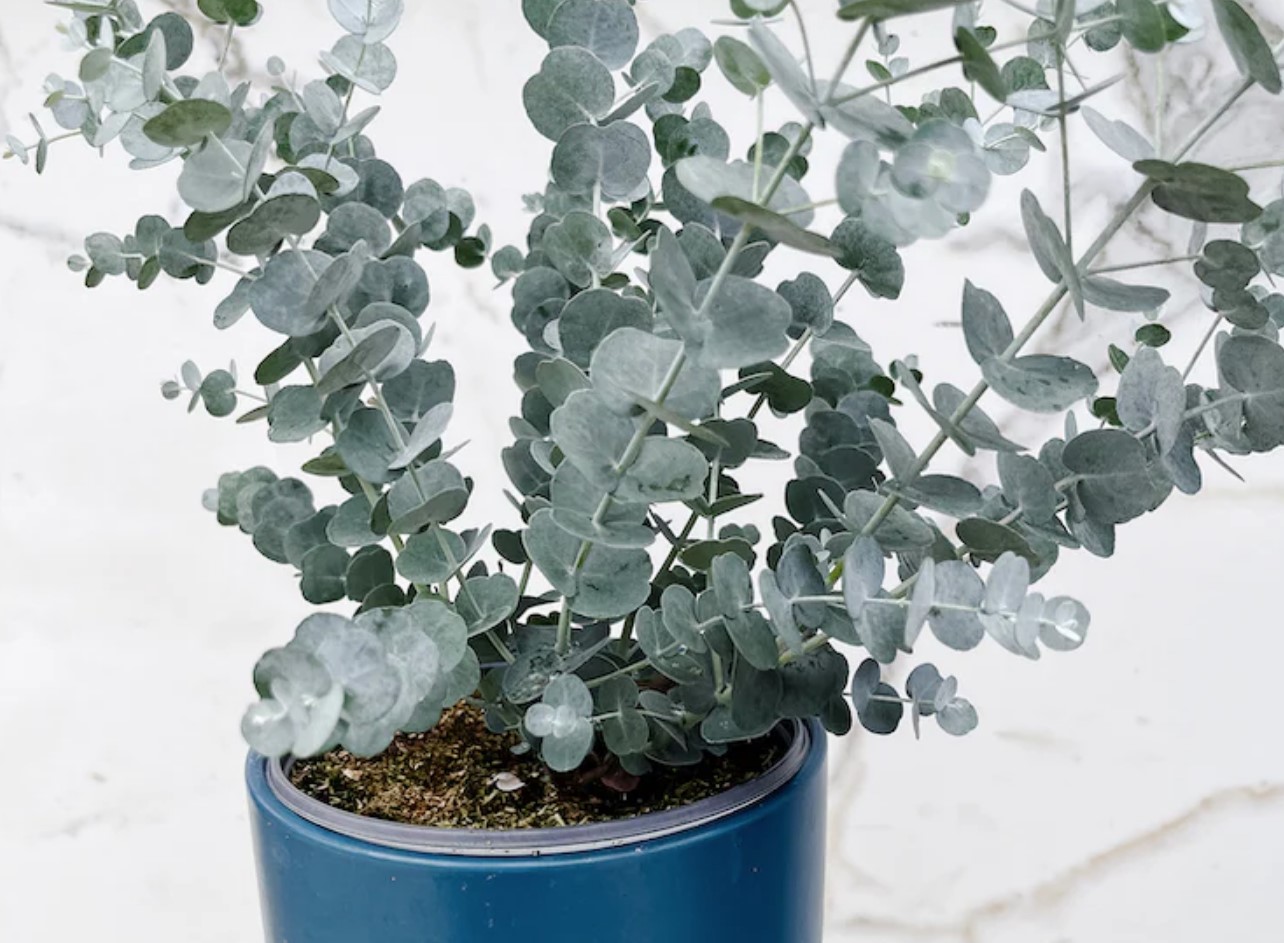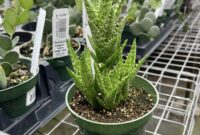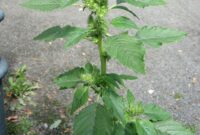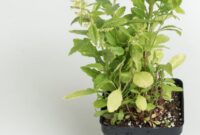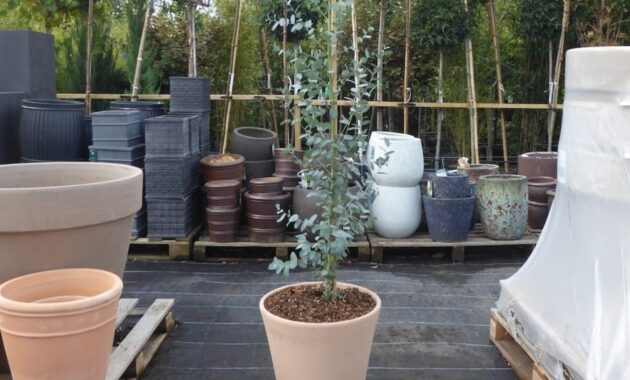
Eucalyptus, with its distinctive aroma and striking foliage, has captured the hearts of many plant enthusiasts. Whether you’re drawn to its aesthetic appeal or its numerous health benefits, this versatile plant can add a touch of nature to your home and wellness routine. In this comprehensive guide, we’ll delve into the world of eucalyptus, exploring its care, benefits, and various uses.
What is Eucalyptus?
Eucalyptus is a genus of flowering plants belonging to the myrtle family, Myrtaceae. Native to Australia, these evergreen trees and shrubs are known for their rapid growth, hardiness, and aromatic leaves. While they are typically grown outdoors, with proper care, you can cultivate eucalyptus plants indoors as well.
How to Grow Eucalyptus Indoors
Growing eucalyptus indoors can be a rewarding experience. Here’s a step-by-step guide:
- Choose the Right Pot: Select a pot with drainage holes to prevent waterlogging.
- Prepare the Soil: Use a well-draining potting mix that is rich in organic matter.
- Plant the Eucalyptus: Gently place the eucalyptus plant in the pot and fill it with the prepared soil.
- Provide Adequate Light: Place your eucalyptus plant in a bright, sunny location.
- Water Wisely: Water your plant regularly, allowing the soil to dry slightly between waterings.
- Maintain Humidity: Eucalyptus plants thrive in humid environments. Consider using a humidifier or placing a tray of water near the plant.
Eucalyptus Plant Benefits
Eucalyptus plants offer a myriad of benefits:
- Air Purification: They help purify the air by absorbing toxins and releasing fresh oxygen.
- Aromatherapy: The aromatic oils extracted from eucalyptus leaves are used in aromatherapy to relieve stress, congestion, and respiratory issues.
- Insect Repellent: Eucalyptus oil is a natural insect repellent, keeping pests at bay.
- Decorative Appeal: Eucalyptus plants add a touch of elegance to any home decor.
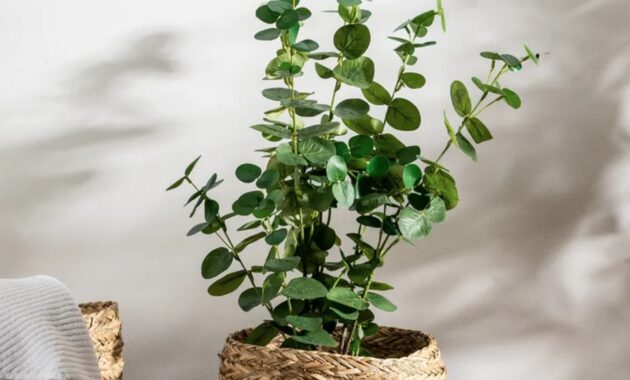
Eucalyptus Tree vs. Eucalyptus Plant
While the terms “tree” and “plant” are often used interchangeably, there’s a distinction between eucalyptus trees and eucalyptus plants. Eucalyptus trees are larger, outdoor plants that can grow to significant heights. Eucalyptus plants, on the other hand, are smaller and more suitable for indoor cultivation.
Eucalyptus Plant Uses
Eucalyptus plants have a wide range of uses:
- Home Decor: They can be used as indoor plants, cut flowers, or dried arrangements.
- Medicinal Purposes: Eucalyptus oil is used to treat various ailments, including coughs, colds, and sinus infections.
- Culinary Applications: Some eucalyptus species are used in cooking and flavoring food and beverages.
Growing Eucalyptus from Seeds
Growing eucalyptus from seeds is a rewarding process. Here’s how to do it:
- Sow the Seeds: Plant the seeds in a well-draining potting mix.
- Provide Warmth and Moisture: Keep the seeds moist and warm to encourage germination.
- Transplant the Seedlings: Once the seedlings have grown a few inches tall, transplant them into individual pots.
Indoor Eucalyptus Plant Tips
- Pruning: Prune your eucalyptus plant regularly to maintain its shape and encourage bushier growth.
- Fertilizing: Feed your plant with a balanced liquid fertilizer during the growing season.
- Pest and Disease Control: Monitor your plant for pests like mealybugs and scale. Treat infestations promptly.
Eucalyptus Plant for Home Decor
Eucalyptus plants can elevate your home decor in various ways:
- Indoor Plants: Place them in stylish pots to add a touch of greenery to your living spaces.
- Cut Flowers: Use eucalyptus branches as cut flowers in vases or floral arrangements.
- Dried Arrangements: Dry eucalyptus leaves and stems to create beautiful, long-lasting decorations.
Eucalyptus Plant Medicinal Uses
Eucalyptus has been used in traditional medicine for centuries. Its medicinal properties are primarily attributed to its essential oil:
- Respiratory Health: It can help relieve congestion, coughs, and sinus infections.
- Pain Relief: Eucalyptus oil can be used to alleviate muscle and joint pain.
- Antimicrobial Properties: It has antimicrobial properties that can help fight infections.
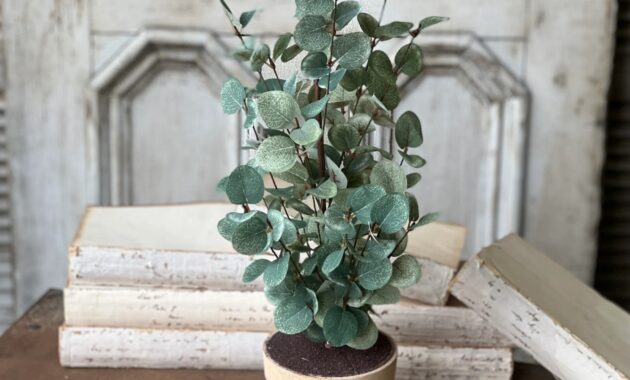
Eucalyptus Plant in Pots
Growing eucalyptus in pots is a great way to enjoy these plants indoors. Choose a pot with drainage holes and use a well-draining potting mix. Water your plant regularly, but avoid overwatering.
Benefits of Eucalyptus Leaves
Eucalyptus leaves are packed with health benefits:
- Aromatic Properties: They release refreshing and invigorating aromas.
- Antioxidant Properties: They contain antioxidants that help protect cells from damage.
- Anti-inflammatory Properties: They have anti-inflammatory properties that can soothe inflammation.
Eucalyptus Plant Pruning Guide
Pruning your eucalyptus plant can help maintain its shape and promote healthy growth. Here are some tips:
- Timing: Prune your plant in late winter or early spring.
- Tools: Use clean, sharp pruning shears.
- Technique: Cut back branches to desired length, making clean cuts.
Eucalyptus Plant Health Benefits
In addition to its medicinal uses, eucalyptus can also promote overall well-being:
- Stress Relief: The aroma of eucalyptus can help reduce stress and anxiety.
- Improved Sleep: It can help improve sleep quality by promoting relaxation.
- Boosted Immunity: It can help strengthen the immune system.
Where to Buy Eucalyptus Plant
You can purchase eucalyptus plants at local nurseries, garden centers, or online retailers. Look for healthy plants with vibrant foliage.
Best Soil for Eucalyptus Plant
Eucalyptus plants thrive in well-draining soil. A mixture of potting soil, perlite, and coarse sand is ideal.
How to Propagate Eucalyptus
Eucalyptus can be propagated through cuttings or seeds. Cuttings are the most common method. Simply take a stem cutting, remove the lower leaves, and plant it in a pot of potting mix.
Eucalyptus Plant Pests and Diseases
Eucalyptus plants are relatively pest and disease-resistant. However, they can be susceptible to mealybugs, scale, and fungal diseases. Monitor your plant regularly and take action to address any issues promptly.
Eucalyptus Essential Oil from Plants
Eucalyptus essential oil is extracted from the leaves of eucalyptus trees through steam distillation. It is widely used in aromatherapy, skincare, and cleaning products.
How to Dry Eucalyptus Leaves
Drying eucalyptus leaves is a simple process:
- Harvest: Cut fresh eucalyptus branches.
- Drying Method: You can air dry the branches by hanging them upside down in a warm, dry place, or use a microwave or oven to speed up the process.
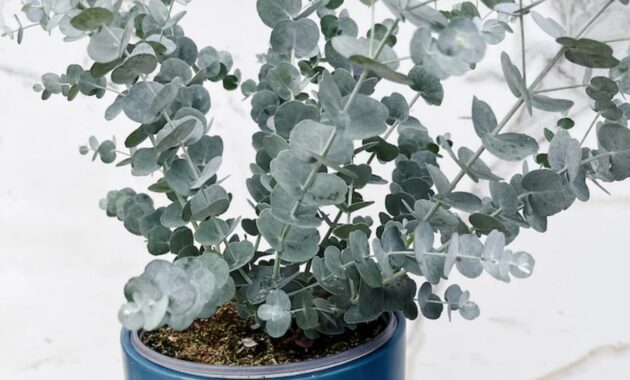
Eucalyptus Plant for Aromatherapy
Eucalyptus essential oil is commonly used in aromatherapy to:
- Clear Congestion: It can help relieve congestion and respiratory issues.
- Reduce Stress: It can help reduce stress and anxiety.
- Promote Relaxation: It can help promote relaxation and improve sleep quality.
Conclusion
Eucalyptus plants are versatile and beneficial additions to any home. Whether you’re drawn to their aesthetic appeal, their air-purifying properties, or their medicinal benefits, these plants offer something for everyone. By following the care tips outlined in this guide, you can enjoy the beauty and benefits of eucalyptus for years to come.
FAQs
- Can I grow eucalyptus outdoors in colder climates?
While eucalyptus is primarily a tropical plant, some hardy varieties can be grown outdoors in milder climates. However, it’s important to research the specific hardiness of the variety you choose. - How often should I fertilize my indoor eucalyptus plant?
Fertilize your indoor eucalyptus plant once a month during the growing season (spring and summer) with a balanced liquid fertilizer diluted to half strength. - Can I use eucalyptus leaves in cooking?
Yes, some eucalyptus species, such as Eucalyptus citriodora, can be used in cooking to flavor dishes and beverages. However, it’s important to use them in moderation and consult with a culinary expert before incorporating them into your recipes. - Are eucalyptus plants toxic to pets?
While eucalyptus is generally non-toxic to humans, it can be toxic to pets if ingested. Keep your eucalyptus plants out of reach of pets to avoid any potential health issues. - How can I prevent my indoor eucalyptus plant from becoming leggy?
To prevent your indoor eucalyptus plant from becoming leggy, provide it with ample sunlight and consider pruning it to encourage bushier growth.
